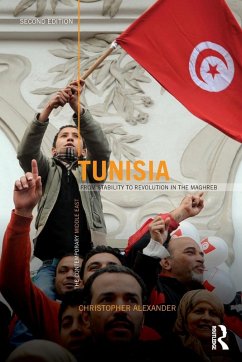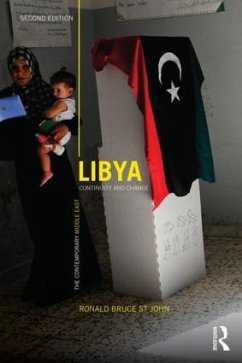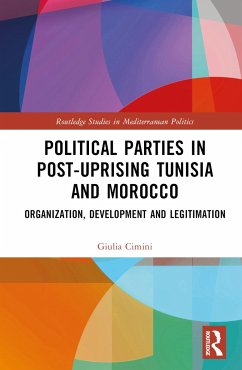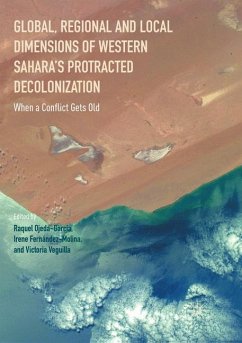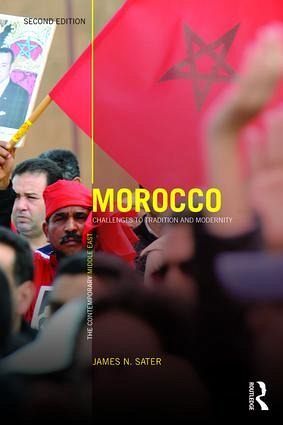
Morocco
Challenges to tradition and modernity
Versandkostenfrei!
Versandfertig in 1-2 Wochen
63,99 €
inkl. MwSt.
Weitere Ausgaben:

PAYBACK Punkte
32 °P sammeln!
Examining the challenges to tradition and modernity in post-colonial Morocco the second edition has a new, updated emphasis on Morocco after the Arab spring. The first edition of this book was published in 2010 one year before the major events of the Arab spring rocked the Arab world. The Moroccan state reacted by drafting a new constitution and passing it in a referendum in July 2011; furthermore, it organized new elections which resulted in a government headed by an Islamist prime minister. This reaction has made Morocco quite unique in the Arab world - moving fast to accommodate some of the protesters demands thereby splitting opposition, yet remaining uncompromising on any true reform of the monarchy's claims to power. The second edition uses recent events to provide a more theoretical explanation of the monarchy's adaptation. Easily accessible to non-specialists, practitioners, and upper level undergraduate students, this book is essential reading for those working in the fields of North African Studies, International Relations and Middle East Studies.
The first edition of Morocco was published one year before the mass protests of the Arab Spring rocked the Moroccan state. Post-Arab Spring, the country has a new constitution and government, but the state remains uncompromising on any true reform of the monarchy's claims to power.
This new edition provides an introductory overview of the history, contemporary politics, economy, and international relations in Morocco and offers an examination of the challenges to tradition and modernity in the post-colonial state. It has been revised and updated to include analysis of the country's evolving politics in the years following the Arab Spring, and the consequences this has had for the country's traditional monarchy. It pays particular attention to the new constitution, the policies of the new Islamist-led government, and it includes an analysis of Morocco's foreign policy in the post-Arab Spring regional context. Drawing on key academic texts, the author provides a detailedanalysis of Morocco, focusing on issues such as:
- Morocco's role within the region
- Trade policies with Europe
- Migration
- Morocco's Western Sahara policy
- Ways of dealing with Political Islam
- The extent to which European influence has affected Moroccan society
Easily accessible to non-specialists, practitioners, and upper level undergraduate students, the book will be essential reading for those working in the fields of North African studies, International Relations and Middle East studies.
This new edition provides an introductory overview of the history, contemporary politics, economy, and international relations in Morocco and offers an examination of the challenges to tradition and modernity in the post-colonial state. It has been revised and updated to include analysis of the country's evolving politics in the years following the Arab Spring, and the consequences this has had for the country's traditional monarchy. It pays particular attention to the new constitution, the policies of the new Islamist-led government, and it includes an analysis of Morocco's foreign policy in the post-Arab Spring regional context. Drawing on key academic texts, the author provides a detailedanalysis of Morocco, focusing on issues such as:
- Morocco's role within the region
- Trade policies with Europe
- Migration
- Morocco's Western Sahara policy
- Ways of dealing with Political Islam
- The extent to which European influence has affected Moroccan society
Easily accessible to non-specialists, practitioners, and upper level undergraduate students, the book will be essential reading for those working in the fields of North African studies, International Relations and Middle East studies.





